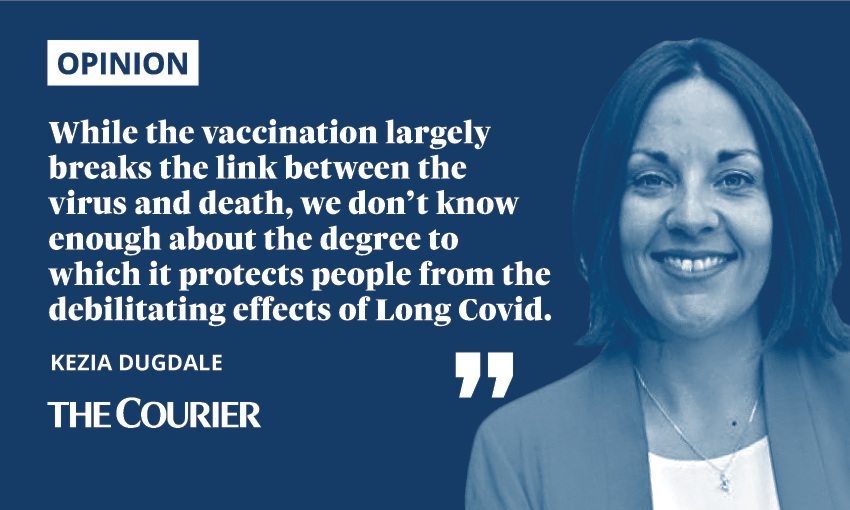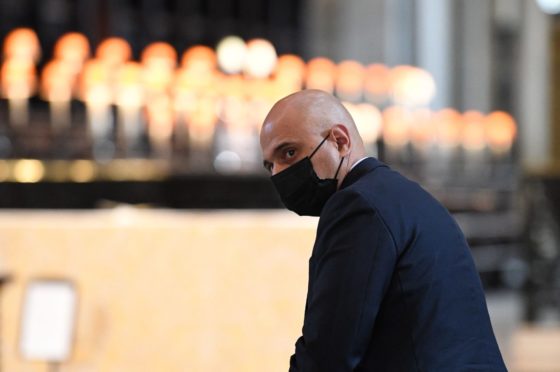The UK Government fully expects the rising Covid-19 cases to start falling by the middle of August.
Not because they’ll have successfully suppressed the infection rate, but because there will literally be no one left for the virus to infect.
Since Sajid Javid replaced Matt Hancock as Health Secretary, we’ve witnessed a new direction in the strategy emanating from Downing Street – we have now to live with Covid-19.
It’s less of a policy tweak and more of a sliding handbrake turn into the unknown.
We know who’s at the wheel, but I’m less and less sure they’re in control.

The Former US Defence Secretary Donald Rumsfeld, who died last week, was an extraordinary public servant, with a career spanning six decades.
I use the word extraordinary in the literal dictionary sense. I’m not suggesting he did nothing but good, simply that he did an awful lot over a long period of time.
With such a distinguished CV it’s perhaps odd that his life has been boiled down into one now famous phrase which I’ve been pondering a lot this past week in the context of the pandemic.
“There are known knowns. These are things we know that we know.
“There are known unknowns. That is to say, there are things that we know we don’t know.
“But there are also unknown unknowns. There are things we don’t know we don’t know.”
He was parodied at the time, not least because he used the quote as an argument for intervention in Iraq, suggesting a lack of evidence of Iraq giving terrorists weapons of mass destruction was not proof that they didn’t.
Yet there is a certain wisdom to his logic and it’s the known unknowns which bother me today.
For one thing, we don’t know enough about Long Covid.
While the vaccination largely breaks the link between the virus and death, we don’t know enough about the degree to which it protects people from the debilitating effects of Long Covid, which manifests itself as fatigue and breathlessness for months after infection.
At the Prime Minister’s press conference earlier this week, he was specifically asked about Long Covid and the strain that dealing with it might put on the NHS.
Academics left to fill in the blanks
Even Professor Chris Whitty ducked the issue, sidestepping altogether a question about what modelling there was.
That left Prof Stephen Reicher to step into the frame via Twitter with his own set of numbers.
There have been many standout academics of this past year and they’ve done so much good in the context of educating and informing the public.
Debunking myths and breaking down complex problems and concepts for 30 second clips on the lunchtime news is quite the skill.
V useful summary @devisridhar
Key point is that noone has a crystal ball – researchers & policy makers cannot provide certainty
Everyone wants a cast iron plan
This isn't a project where we deliver something and celebrate at the end
But humans are resilient & science is helping🌍 https://t.co/J4YRehyiHY— Linda Bauld (@LindaBauld) July 1, 2021
Professors Linda Bauld and Devi Sridhar are now household names, whether they aspired to be or not, and we should be immensely grateful to them for their public service.
For me though Prof Reicher, of St Andrews University, has really stood out as a compelling communicator throughout the pandemic.
I find myself actively looking for his views on issues before covering my eyes as yet another calamitous decision is taken.
Numbers tell an alarming story
Prof Reicher argues that 40% of people who get infected now could get Long Covid.
That includes 30% of young people – the group we’re now actively encouraging the virus to rip through at breakneck speed.
Once you’ve got Long Covid, he reports that two thirds of people will find their lives restricted by the condition, 20% or one in five of them severely.
In short that means that if 100,000 people get Covid every day this summer – as the government estimates – 20,000 to 25,000 people will be ill for a long time and 6,000 to 8000 of them will be very ill.
Sajid Javid acknowledges his policies will lead to 100,000 covid cases or more per day.
REACT study shows that 40% of those infected – and 30% of young people infected – get Long Covid
ONS study shows 65% of those with Long Covid find their lives restricted, 20% severely. pic.twitter.com/shVffLTIyx— Stephen Reicher (@ReicherStephen) July 6, 2021
So just to be clear, the decision to unlock everything has been taken in England, in the full knowledge that 6,000 people a day could get very ill, and that’s apparently OK because they won’t die.
That is every bit as astonishing as it is frightening.
Getting through the last 12 months or so was a little easier knowing everyone faced restrictions on their liberty, that everyone was making sacrifices for the collective health of the country, some more than others, of course.
That is no longer the case.
Surely the Government’s role is not just to protect us from death, but to enable us all to live good healthy lives?
Try telling someone who can barely leave the house four months after getting infected that they should be grateful the vaccine protected them from a stay in ICU.
I really hope I’m wrong, but I can’t help but think we’ll look back on this period and wished we’d locked down for longer, as painful as it was, knowing that living life and living with Covid-19 aren’t the same thing.
